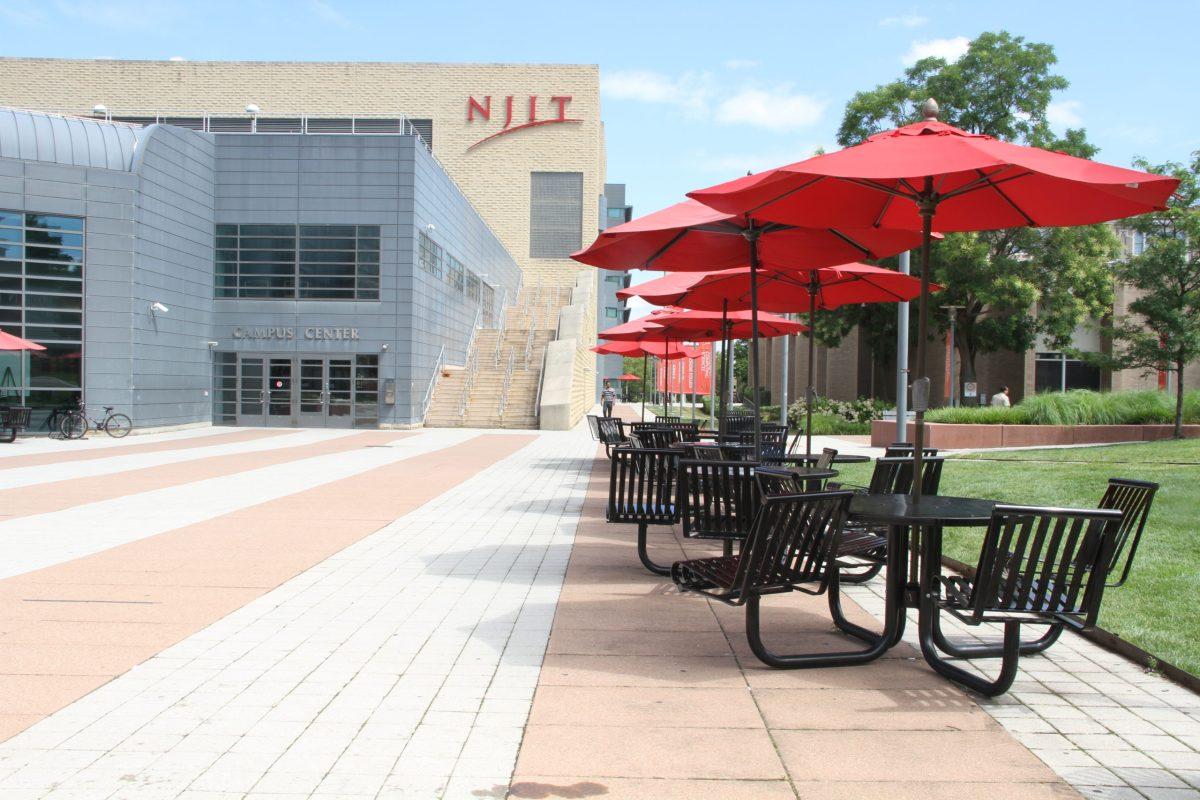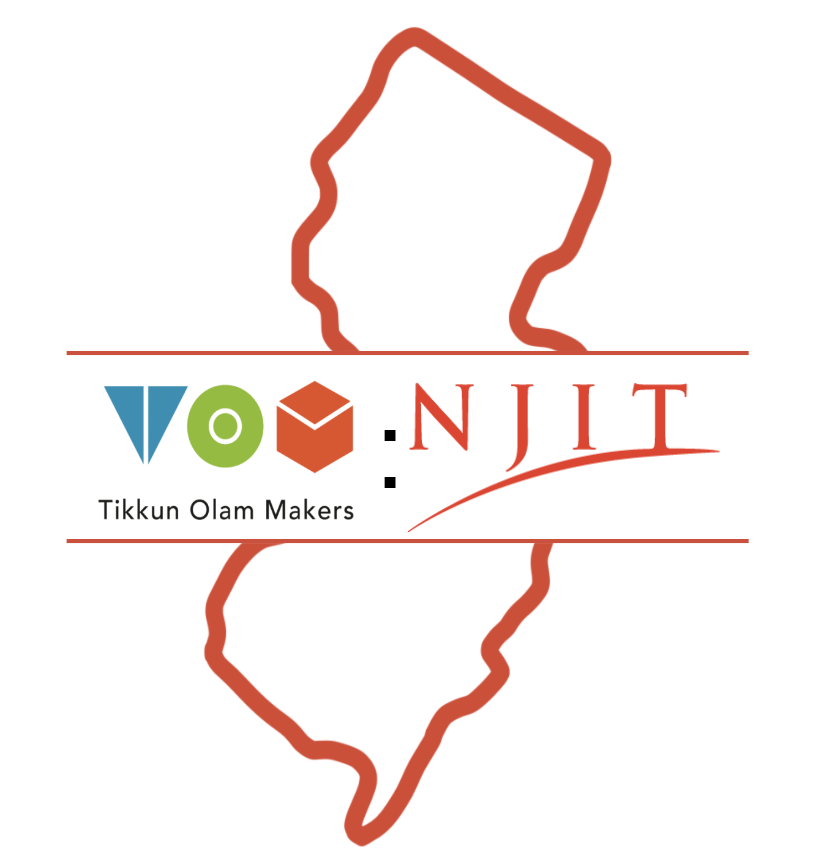On March 8, almost a full year after NJIT’s unexpected move to online learning following the COVID-19 pandemic, President Joel Bloom sent an email to the community announcing that the university is planning for an in-person Fall 2021 semester. This in-person return would include primarily in-person instruction with full residence halls, events and activities and active research labs, with all buildings and other facilities operating at full or nearly full capacity.
The current academic year is the first full year that was completely conducted in online or converged learning mode, aided by the thorough planning and organization of NJIT administration and staff.
“Even before the pandemic was formally declared, watching what was happening in other countries, NJIT established a small committee to prepare and consider possible approaches for remote education and research continuity in case we had to close the university,” said Provost and Senior Executive Vice President Fadi Deek.“The work of that committee allowed us to almost overnight transition from our regular operation to one that was fully virtual. Upon NJIT’s closure in March 2020, that original committee was expanded into the Steering Committee of the Pandemic Recovery Plan.”
This Steering Committee was subdivided into smaller subcommittees, each “chaired by one or two members… with the intent to address specific issues” such as the Instructional Delivery Subcommittee, according to Senior Vice Provost for Academic Affairs and Student Services Basil Baltzis. “We believe that the plan, its implementation and alterations as needed served the university very well in the past 13 months.”
However, Deek and Baltzis noted that the Steering Committee saw no need to return to the now familiar converged learning mode modality in Fall 2021 if not strictly necessary, with a decision finalized, contingent on the pandemic conditions throughout the semester. “As you very well know,” said Baltzis, “despite all our efforts, the real converged mode did not actually work as we planned and hoped for. A small number of students attended in person and this was counterproductive.” Deek acknowledged that even “against all expectations,” in case COVID-19 conditions worsen next semester again, “the converged mode may be of use” once again.
Many students are eager for the return to in-person classes and on-campus social life, citing difficulties focusing or staying motivated. “I have a lot of attention issues. And I’m quite social. Being forced to stay at home for three semesters was both a blessing and a curse,” said Kevin Pereira, fourth year computer science major. According to Pereira, time at home allowed him to develop new hobbies, such as gardening and brewing mead, but he became unmotivated to focus in classes online, even in his favorite subject, history.
“I was living on campus before COVID-19 hit. I would love to go back,” said Salmaan Saeed, second year information technology major. “Online learning is too stressful and makes me unmotivated and lazy. I like the social life at campus. At least I did not have to pay for lousy cafeteria food for three semesters.”
“I don’t want to selectively commute to school just for one or two classes. The inconvenience of commuting outweighs in person classes,” said Mervyn Mathew, junior computer science major, regarding the converged learning mode. Mathew has been a commuter since freshman year and intends to commute next year as well. However, he is also looking forward to going back to campus. “Although I don’t mind online, I do miss being on campus and being able to just walk around, and in person classes do force me to pay attention.”
The decision to eliminate converged learning instruction has also been met with mixed feelings. Over the past 13 months, students have adapted and become accustomed to the new mode of learning, which has its own unique benefits and challenges. “I feel like it should go back to the way it was in Spring 2020 where every class is converged, because I really don’t know if I’m ready to get up and go … to every single class I have,” said Adebusayo Kolade, a sophomore electrical engineering major. “Honestly, it scares me just thinking about it. My pandemic habits are just so different from what I was used to before, and the thought of getting suddenly thrown back into what I was doing before everything… it makes me anxious. I’d love for some way to slowly transition to fully in person classes that would still allow people who are more than ready to jump right in. Give us the option to go at our own pace, you know?”
“The current plan is that the entire university operation returns to its pre-pandemic conditions,” emphasized Deek and Baltzis. They said the Instructional Delivery Subcommittee has received ample feedback from students and parents that they would prefer semesters in person. In fact, they revealed that they had been receiving feedback from newly admitted students that have “indicated that in case we do not return to regular operation, they will opt to either delay the start of their studies at NJIT or will choose another university.”
With this goal in mind, the same schema of a dedicated group under the Steering Committee of the Pandemic Recovery Plan was utilized for the next school year. Deek, also co-Chair of the Pandemic Recovery Steering Committee, said “the Subcommittees and Steering Committee followed various developments at the city (Newark), state and national levels, the progress and availability of vaccinations, and prepares for a safe return to the university the students had applied to; a university with a vibrant campus life and the in-class and extra-curricular activities that prepare our students for a successful career upon graduating.”
One major turning point that opened up the possibility of a return in person has been the rapid release of the COVID-19 vaccine. Only last week, President Joe Biden pushed the planned vaccine eligibility deadline up by two weeks, such that all American adults should be eligible to receive a COVID-19 vaccine by April 19.
Over a dozen U.S. colleges, including Rutgers University, will require that students returning to campus in the fall must have received the COVID-19 vaccine before the first day of class. According to Deek and Baltzis, final decisions regarding a vaccination policy have not yet been made. They are already hopeful that a large majority of the university population will take advantage of the availability of the vaccine. “We are aware that many of us have already been vaccinated and the recent opening of a vaccination site on our own campus will facilitate this further for us,” said Deek. “It is reassuring that vaccine supply is not expected to be an issue [by the fall semester].”
However, it appears instating a vaccination policy is not off the table. Should NJIT announce a vaccination policy, Deek and Baltzis said verification will closely resemble verification of COVID-19 testing that has occurred at the beginning of the past two semesters.
Kolade expressed support for a mandatory vaccination policy. “It’s really important we do whatever to slow the spread… anyone who is regularly coming to campus or staying here should be vaccinated if possible.” Mervyn Mathew, third year computer science student, argued that if going in person is mandatory, that it only makes sense that a mandatory vaccination policy is instated.
Concerns about a mandatory vaccination policy have also been raised regarding access, especially to international students, and religious or medical accommodations. However, according to Deek, “it goes without saying that members of our community who have health issues will be accomodated. It has also been a standard practice of the university to protect and respect freedom of religion.” Further, regarding lack of access to vaccinations, particularly of international students, “should vaccination be required the university will have a plan in place to accommodate all of our international students, including the incoming cohorts, in a timely fashion.”
Deek and Baltzis said the ultimate goal is to return to a campus strengthened, despite inevitably new challenges. “We are looking forward to a university community informed and strengthened by the challenges of the pandemic, perhaps more accepting, engaging, empathetic and humane than ever before.”
Evan Markowitz contributed to the reporting of this piece.




























